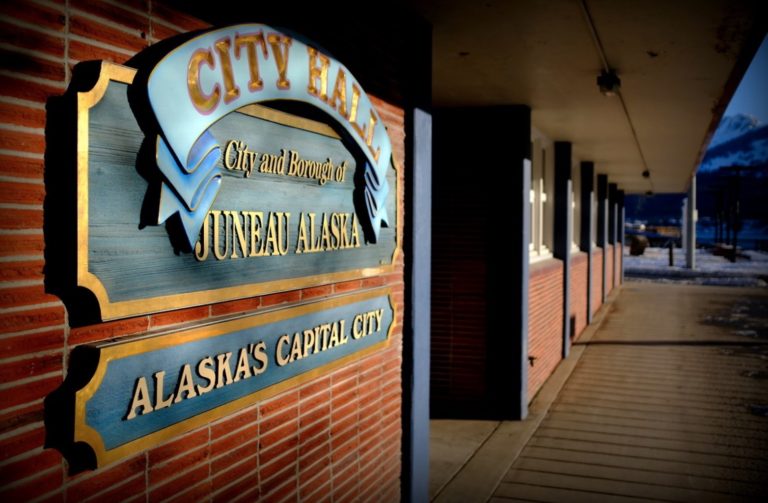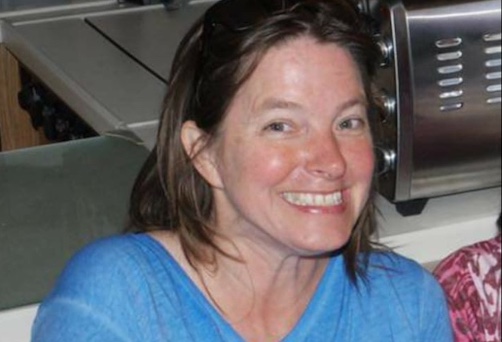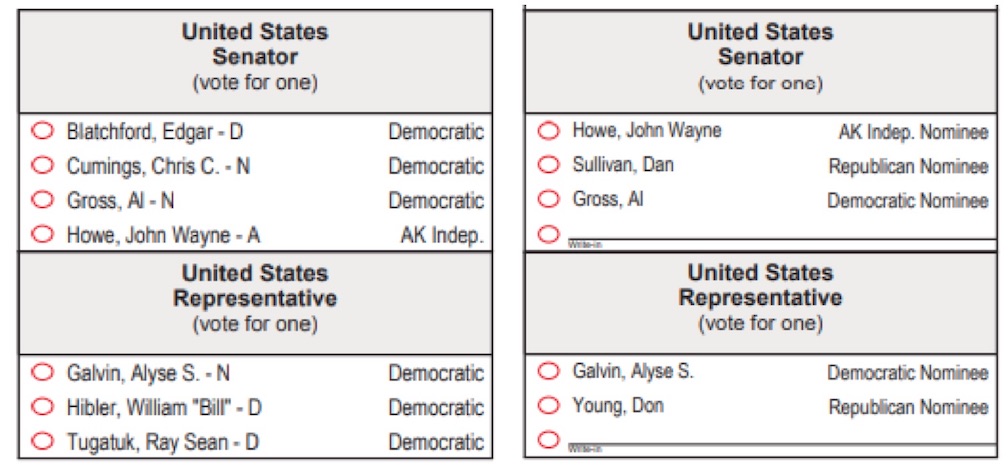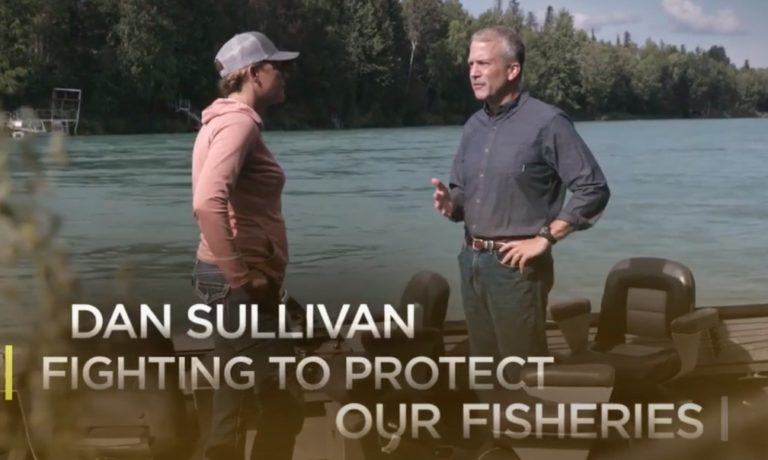By WIN GRUENING
It’s become a bit tiresome watching the constant barrage of political ads and op-eds claiming a candidate isn’t really “Alaskan” and thus not qualified to represent Alaska.
As if the length of your Alaska residency or where you were born determined that.
A recent example is Zach Brown’s September 4 Juneau Empire My Turn deriding Alaska Senator Dan Sullivan – labelling him as “Ohio Dan” and unworthy to represent Alaska.
Sullivan’s major flaw? He was born Outside. I wonder if Brown feels similarly about “Frisco Bay” Berkowitz, “Big Apple Jay” Hammond or “Tulsa Tony” Knowles?
Brown implies since Sullivan has received campaign contributions from Republican supporters outside Alaska, by some leap of logic, he must be a climate-change denier who cares nothing for the environment.
According to Brown, the reader’s only choice to defeat this threat and combat the lies “that will spread like an oil slick as more dark money spills into Alaska,” is to vote for Al Gross, “an authentic, independent voice who will speak for Alaskans instead of billionaires from New York City.”
Hogwash. And how does being born in Alaska make someone automatically “authentic” and deserving of deference and respect?
Karl Kircher, writing in the ADN last year, opined that in Alaska’s early days, “the spirit of being an Alaskan would likely include a dedication to working together and contributing to create a society in the vast, beautiful place they wanted to live.”
Most of us know people who weren’t born here but reflected that attitude. They came here to enjoy Alaska’s beauty and experience unparalleled opportunities to succeed, raise a family, and make a difference.
Their journey to Alaska and decision to stay was a choice, not a birthright. They expressed their gratitude through public service and helping others.
Conversely, there are people who have spent their entire lives here yet were always too busy for community service. They spent their time cashing in, not giving back.
Opportunists like that can be found anywhere and Al Gross is one of them.
It’s not surprising because Gross has no record to run on. His carefully crafted narrative is full of irrelevant stories like his family narrowly being buried in an avalanche, shooting a grizzly bear in self-defense, and growing up while his New York-born father was Alaska’s Attorney General.
Gross made a fortune as an orthopedic surgeon in Juneau, but his resumé lacks any public service or recognition in the community where he was born and spent his career.
Gross’s campaign ads extol his “Alaskanism”, but the source of his campaign donations contradict his supposed grassroots-grown candidacy. Federal campaign reports reveal Gross has benefited from millions of dollars in contributions funneled through ActBlue and the Lincoln Project, two special interest political organizations largely funded by out-of-state coastal liberals dedicated to flipping the U. S. Senate to Democrat control.
Gross claims political independence but has explicitly stated he will caucus with the Democrats and that most of his values are to the left, but his best path to get elected is to portray himself as an “independent.”
It’s hard to understand how Gross thinks his campaign embodies the “authentic” values Alaskans embrace.
In contrast, Dan Sullivan’s lengthy record of service to our country and state is exemplary. Dan served as Alaska’s Attorney General, spearheading the state’s Choose Respect strategy to combat domestic violence. He also served as Commissioner of the Alaska Department of Natural Resources prior to being elected to the U. S. Senate.
Dan Sullivan is recognized as one of the Senate’s most effective lawmakers. His membership on committees critical to Alaska include: Armed Services, Commerce, Veterans Affairs, and Environment and Public Works. He is currently an infantry officer and Colonel in the U.S. Marine Corps Reserves.
Sullivan has taken the lead on rebuilding our country’s military, promoting responsible resource development in Alaska, opening markets for Alaska’s fishermen, and cleaning up our oceans.
Dan and his wife Julie Fate Sullivan were married 26 years ago in Julie’s hometown of Fairbanks, Alaska, where they first made their home. Later they moved to Anchorage where they raised their three daughters.
On November 3, if “authenticity” is on the ballot, the choice is easy.
Win Gruening retired as the senior vice president in charge of business banking for Key Bank in 2012. He was born and raised in Juneau and graduated from the U.S. Air Force Academy in 1970. He is active in community affairs, was a 30-plus year member of Juneau Downtown Rotary Club and has been involved in various local and statewide organizations.









